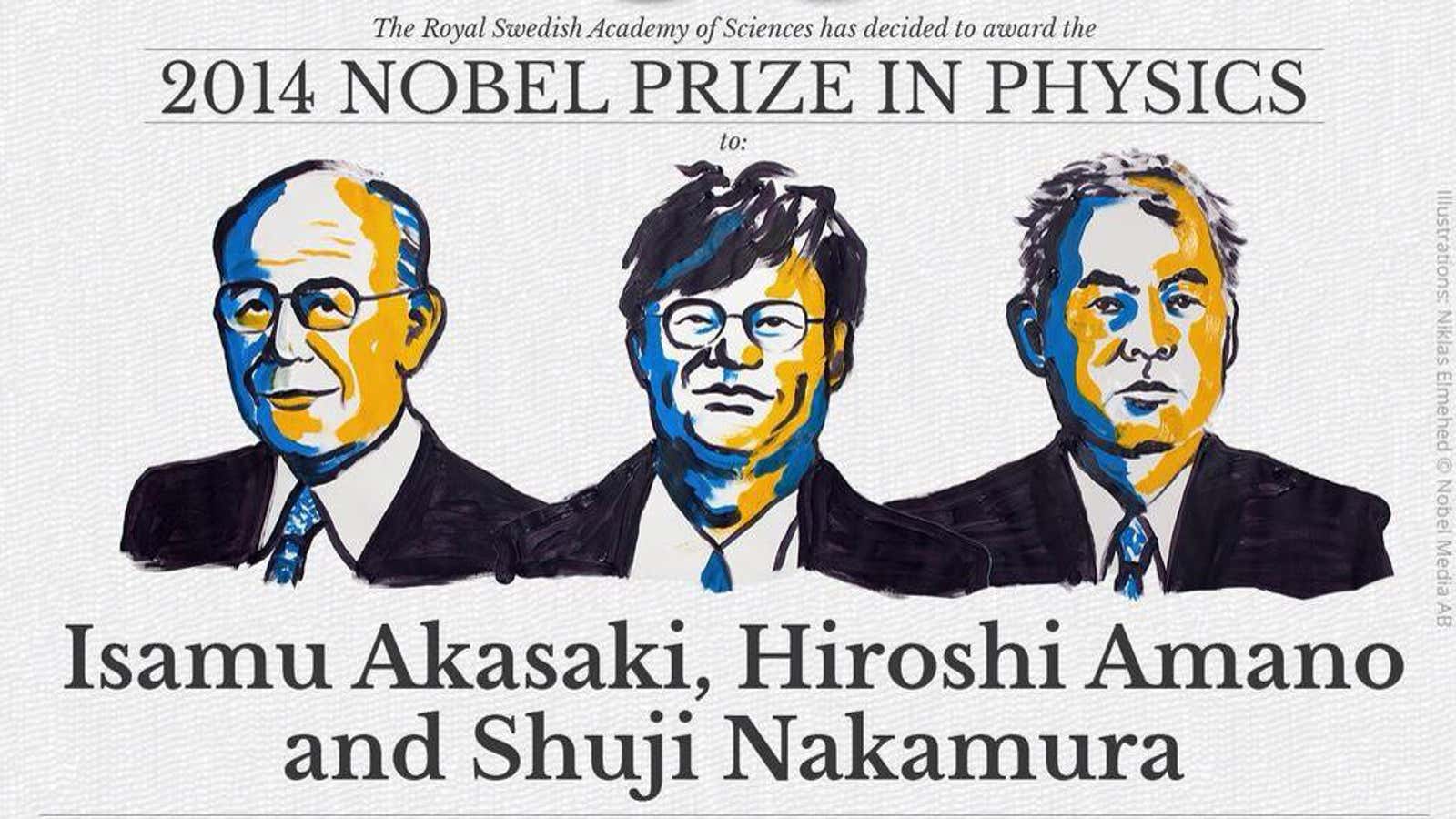In the small Japanese town of Anan, in 1993, Shuji Nakamura, an employee at Nichia Corporation, invented the blue light-emitting-diode (LED), which today lights up homes, offices, billboard and streets across the world. This morning Nakamura, along with Isamu Akasaki and Hiroshi Amano, won the Nobel Prize in Physics.
Within a few years it was clear that the blue LED was a multi-million-dollar invention, though McKinsey recently reckoned (pdf) it will be worth some €64 billion ($80 billion) by 2020. Its potential goes beyond just lighting: Companies are working on integrating LEDs with Wi-Fi and smart cities too.
Nakamura’s reward from Nichia? 20,000 yen, or some $200 at the time.
Back then, Japanese firms and most employees still held to the rule that the employer was a substitute for family, and that work was an end in itself, not a means to enrichment or personal glory. Nakamura was having none of it. He quit his job in 2000, moved to the US, and became an American citizen. He is now at the University of California in Santa Barbara.
In 2001, Nichia sued Nakamura for infringing trade secrets. Nakamura counter-sued and demanded a share of the booty. The two parties settled in 2005, with Nichia agreeing to pay Nakamura 840 million yen (then worth $8.1 million) after a lower court had awarded him 20 billion yen. The New York Times reported at the time that it was the largest payout ever made to an employee for an invention.
(With thanks to Hiroko Tabuchi for the tip.)
